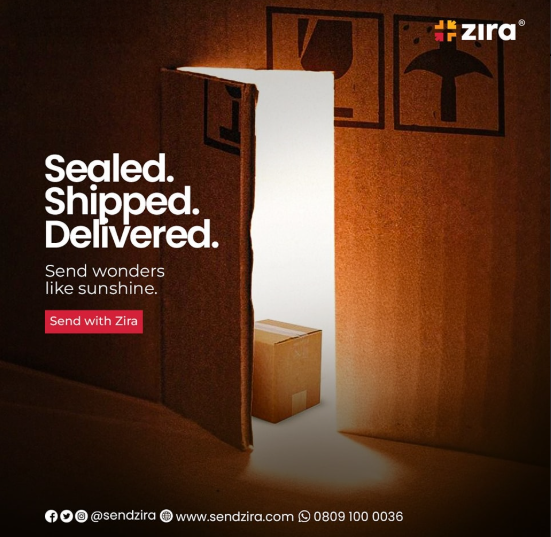Air Freight vs Sea Freight from Nigeria: Which is Right for You?

Planning to ship goods from Nigeria but stuck between choosing air or sea freight? You’re not alone. This decision affects thousands of businesses and individuals every day, and making the wrong choice can cost you time, money, and peace of mind.
At Sendzira, we help Nigerians navigate complex shipping decisions daily. Whether you’re sending personal items to family abroad or managing business shipments, understanding the difference between air freight and sea freight is crucial for your success.
Let’s break down everything you need to know to make the right choice for your specific needs.

Which is Better, Air Freight or Sea Freight?
The answer isn’t simple – it depends entirely on your priorities. Think of it like choosing between a sports car and a truck. Both get you there, but they serve different purposes.
Air freight wins when you need:
Speed and reliability
Safety for high-value items
Predictable delivery times
Less handling of your goods
Sea freight is better when you want:
Lower costs for large shipments
No weight restrictions
Environmentally friendly shipping
Maximum cargo flexibility
Understanding Air Freight: Speed at a Premium
Air freight is the Ferrari of shipping. Currently, air freight is the fastest, safest way to get goods from one continent to another.
How Long Does Air Shipping Take?
From Nigeria’s major airports like Lagos, Abuja, or Port Harcourt, air freight typically takes:
5-7 days to Europe (UK, Germany, France)
7-10 days to North America (USA, Canada)
3-5 days to neighboring African countries
These timelines include customs clearance and final delivery to your destination.
The Advantages of Air Freight
Lightning Fast Delivery When your shipment absolutely must arrive quickly, nothing beats air freight. Shipments via air tend to be at the intended destination in a matter of days.
Enhanced Security Your goods are handled less frequently and spend less time in transit, reducing the risk of damage or loss.
Reliable Schedules Airlines operate on fixed schedules with minimal delays compared to sea freight.
Perfect for High-Value Items Electronics, jewelry, pharmaceuticals, and time-sensitive documents are ideal for air freight.
What Are the Disadvantages of Air Freight?
Higher Costs Air freight is faster, safer and more reliable than ocean freight, but it’s also more expensive – a $195 ocean shipment can cost $1,000 by air. Current rates from Nigeria average $6-8 per kilogram for most destinations.
Weight and Size Restrictions Airlines have strict limits on dimensions and weight. Oversized items may not fit.
Limited Cargo Types Airlines also have stricter regulations when it comes to shipping hazardous materials. Batteries, liquids, and certain chemicals face restrictions.
Environmental Impact Air freight produces significantly more carbon emissions per kilogram than sea freight.
Sea Freight: The Budget-Friendly Workhorse
Sea freight is the reliable truck of shipping – slower but incredibly cost-effective for larger loads.
How Long Does Sea Shipping Take?
Shipping times from Nigerian ports vary by destination:
35-45 days to China (Shanghai, Ningbo, Shenzhen)
25-35 days to Europe (Hamburg, Rotterdam, Felixstowe)
40-50 days to North America (New York, Los Angeles)
15-25 days to West African neighbors
The average sea freight transit time from major ports in China—such as Shanghai, Ningbo, or Shenzhen—to Nigerian ports like Lagos, Tin Can Island, or Port Harcourt ranges from 35 to 45 days.
The Advantages of Sea Freight
Unbeatable Cost Savings For businesses shipping large volumes, sea freight offers massive savings. For less urgent, bulk shipments, sea freight will save you money.
No Weight Limits Ship containers, vehicles, machinery – virtually anything fits on a cargo ship.
Eco-Friendly Option Sea freight produces 90% less carbon emissions per ton compared to air freight.
Handles Any Cargo Type Ocean freight is far more flexible – It does not have many restrictions on types of goods and is a little complex in terms of regulations.
What Are the Disadvantages of Sea Freight?
Longer Transit Times Shipments via sea freight can take several weeks, or even up to two months or more given the current disruptions.
Weather Dependencies Storms, port congestion, and seasonal factors can delay shipments.
More Handling Your goods pass through multiple hands, increasing risk of damage.
Complex Documentation Sea freight requires more paperwork and compliance with various port regulations.
Is Sea Shipping Cheaper Than Air?
Absolutely. The cost difference is substantial:
Current 2025 Sea Freight Rates: Sea freight rates from China to Nigeria have shifted lower at $4,550 per 20-foot container (Apapa) and $5,400 per 20-foot container (Tincan).
Current Air Freight Rates: Air freight is slightly higher at $6.10 per kg for shipments over 1,000 kg.
For a 1,000kg shipment, you’d pay approximately $6,100 by air versus sharing container space for a fraction of that cost by sea.
How to Calculate Freight Charges by Sea
Sea freight costs depend on several factors:
Container Types and Pricing:
20-foot container (FCL): ₦6,840,000-8,360,000 to major ports
40-foot container (FCL): ₦6,840,000-8,360,000 (often same price as 20ft)
LCL (Less than Container Load): ₦121,600-182,400 per cubic meter
Additional Costs to Consider:
Port handling charges: ₦304,000-608,000
Documentation fees: ₦76,000-228,000
Insurance: 0.2-0.5% of cargo value
Destination charges: ₦456,000-912,000
Money-Saving Tip: If your shipment fills less than half a container, consider LCL (sharing container space with other shippers).
Making the Right Choice: A Decision Framework
Choose Air Freight When:
Time is critical (product launches, urgent supplies)
High-value, low-weight items (electronics, jewelry, documents)
Perishable goods requiring quick delivery
Small shipments (under 500kg)
Unpredictable demand where speed beats cost
Choose Sea Freight When:
Cost is your priority and time is flexible
Large, heavy shipments (furniture, machinery, vehicles)
Non-urgent bulk goods (clothing, homeware, raw materials)
Environmental impact matters to your business
Regular, predictable shipping schedules
Real-World Examples
Example 1: Electronics Business Sarah imports smartphones from China to Lagos. With high value and theft risk, plus customer demand for latest models, air freight’s 7-day delivery and enhanced security justify the higher cost.
Example 2: Furniture Retailer Tunde ships container loads of furniture from Italy to Abuja. The 35-day sea freight timeline works perfectly with his quarterly inventory planning, saving him 80% versus air freight costs.
Example 3: Emergency Medical Supplies Dr. Adaora needs specialized equipment for her hospital in Port Harcourt within one week. Despite the 5x cost difference, air freight’s reliability makes it the only viable option.
Tips for Success with Either Method
For Air Freight:
Book early during peak seasons (Christmas, back-to-school)
Package efficiently to minimize volumetric weight charges
Ensure proper documentation to avoid customs delays
Consider consolidation services for smaller shipments
For Sea Freight:
Plan 2-3 months ahead for seasonal inventory
Invest in quality packaging for longer transit
Understand Incoterms (FOB, CIF, DDU) before agreeing to prices
Monitor your shipment through tracking systems
The Sendzira Advantage: Expert Guidance for Your Shipping Needs
Choosing between air and sea freight doesn’t have to be overwhelming. At Sendzira, we understand that every shipment tells a story – whether it’s reuniting families with cherished items or helping businesses grow across borders.
Our experienced team analyzes your specific needs, timeline, and budget to recommend the perfect shipping solution. We handle all the complex logistics, documentation, and tracking so you can focus on what matters most.
From urgent air freight deliveries that arrive in days to cost-effective sea freight solutions for your bulk shipments, we’ve got you covered. Our partnerships with trusted carriers ensure competitive rates and reliable service on both air and sea routes.
Ready to make the right shipping choice?
Call/WhatsApp: 0809 100 0036
Email: info@sendzira.com
Don’t let shipping decisions slow down your plans. Contact Sendzira today, and let us turn your shipping challenges into seamless solutions. Your goods, our expertise – delivered with the care and speed you deserve.
